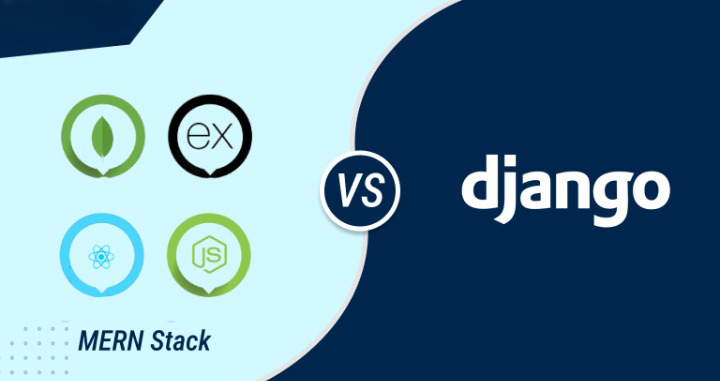How To Become A MERN Developer From Scratch In 2024?
- pankajsharmaaji1
- Apr 27, 2024
- 3 min read
Introduction
In the dynamic landscape of web development, proficiency in the MERN stack has become increasingly valuable. The MERN stack, comprising MongoDB, Express.js, React.js, and Node.js, offers a comprehensive toolkit for building modern web applications. Whether you're a beginner or an experienced developer looking to expand your skill set, mastering the MERN Stack Course opens doors to exciting opportunities in software development.
This guide will outline the steps to becoming a MERN developer from scratch in 2024.
Steps To Become A MERN Developer
A MERN (MongoDB, Express.js, React.js, Node.js) developer is a professional proficient in using the MERN stack to develop web applications. They have expertise in each component of the stack. These components include MongoDB (a NoSQL database for storing data); Express.js (a web application framework for Node.js); React.js (a JavaScript library for building user interfaces); and Node.js (a JavaScript runtime environment for server-side development).
Furthermore, MERN developers leverage these technologies to create scalable, efficient, and interactive web applications, utilizing a combination of JavaScript, HTML, CSS, and other relevant tools and libraries to meet project requirements.

Becoming a MERN (MongoDB, Express.js, React.js, Node.js) stack developer from scratch in 2024 requires dedication, practice, and a structured learning approach. Here's a comprehensive guide to help you embark on this journey:
1. Understanding the MERN Stack
Start by comprehending the components of the MERN stack. MongoDB is a NoSQL database, Express.js is a web application framework for Node.js, React.js is a JavaScript library for building user interfaces, and Node.js is a JavaScript runtime environment. Consider joining the MERN Stack Certification course for the best skill development.
2. Learn JavaScript
Since all components of the MERN stack heavily rely on JavaScript, it's crucial to have a solid understanding of it. Learn the fundamentals of JavaScript including variables, data types, loops, functions, and object-oriented programming concepts.
3. Explore Node.js
Begin by learning Node.js, as it forms the backbone of the MERN stack. Understand event-driven programming, asynchronous programming, and how to use Node.js to build servers. Utilize resources like official documentation, online tutorials, and interactive platforms to grasp Node.js concepts thoroughly.
4. Master Express.js
Express.js simplifies the process of building web applications with Node.js. Learn how to create routes, handle HTTP requests and responses, implement middleware, and work with templates and views. Practice building RESTful APIs using Express.js to interact with MongoDB.
5. Dive into MongoDB
MongoDB is a popular NoSQL database used in MERN stack development. Learn about document-oriented databases, JSON-like data structures, and CRUD operations (Create, Read, Update, Delete) with MongoDB. Explore advanced topics such as indexing, aggregation, and data modeling.
6. Familiarize Yourself with React.js
React.js is a powerful library for building user interfaces. Start by understanding the concepts of components, state, props, and JSX. Practice building simple React components and gradually move on to more complex projects.
7. Build Projects
Apply your knowledge by building projects using the MERN stack. Start with small, simple projects and gradually increase complexity as you become more comfortable. The MERN Stack Course offers you opportunities to work on real-time projects to gain hands-on training. Building real-world applications will help solidify your understanding and showcase your skills to potential employers.
8. Learn Additional Tools and Libraries
Explore additional tools and libraries that complement the MERN stack such as Redux for state management in React.js applications, webpack for bundling assets, and Mongoose for interacting with MongoDB in Node.js applications.
9. Version Control with Git
Learn how to use Git for version control, which is essential for collaboration and managing code changes. Understand basic Git commands, branching strategies, and how to work with remote repositories on platforms like GitHub or GitLab.
10. Stay Updated
The technology landscape evolves rapidly, so it's essential to stay updated with the latest developments in the MERN stack and web development in general. Follow blogs, join online communities, attend meetups, and participate in online courses or bootcamps to continue learning and growing your skills.
Remember, becoming proficient in the MERN stack takes time and consistent effort. Stay patient, keep practicing, and don't hesitate to seek help from online resources or communities when you encounter challenges. With dedication and perseverance, you'll gradually become a proficient MERN stack developer.
Conclusion
To summarise, embarking on the journey to become a MERN stack developer requires dedication, continuous learning, and hands-on practice. Start by mastering JavaScript, Node.js, Express.js, MongoDB, and React.js. Consider getting the MERN Stack Certification along with essential tools and best practices. This way, you can build robust web applications and embark on a rewarding career in web development.


Comments